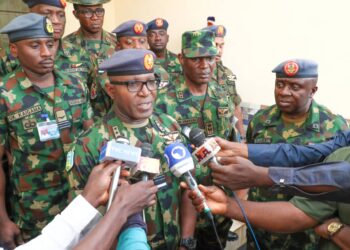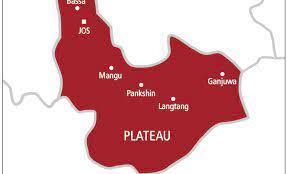The Chief of the Air Staff (CAS), Air Marshal Oladayo Amao, on Wednesday says the Nigerian Air Force (NAF) remains committed to developing, implementing and reviewing policies to ensure that NAF activities were conducted with utmost safety in an optimally safe environment.
A statement by Director of Public Relations and Information Air Commodore Edward Gabkwet (NAF) quoted the Air Chief as saying this while declaring open NAF Safety Review Board (SRB) is currently sitting in Lagos.
He reiterated the importance of the SRB, which is to guide the NAF in appropriately allocating resources to support all safety systems and build organizational culture that fosters safe practices.
Air Marshal Amao added that the meeting was expected to provide an avenue to examine prevalent and evolving safety challenges to enable the NAF adopt safety processes to uphold high safety standards in all its activities.
The CAS noted that the meeting was expected to enable members proffer realistic and lasting solutions to NAF safety related issues in operations, maintenance, health and environmental practices.
Air Marshal Amao also stated that beyond the discussions dwelling on safety in air operations, the year 2022 safety meeting must also deliberate on health and environmental safety measures and strategies, bearing in mind the consequences of neglecting the working and living environments as well as poor personal health management.
He then directed the Chief of Standards and Evaluation to ensure that all NAF units have at least a safety-trained officer to mitigate the dangers associated with poor safety management and procedures. He also reiterated the need for all NAF pilots and aircrew to continue to be updated with evolving safety measures and ensure they keep abreast with new safety innovations in line with best international practices.
While acknowledging that safety in the NAF remains a shared responsibility that requires synergy amongst personnel, the CAS stressed the need for all to understand that safety demands constant vigilance which the NAF is determined to enforce.
Air Marshal Amao went on to note that the NAF has continued to improve safety culture through the enhancement of safety education through the NAF Institute of Safety (NAFIS), which has been reinvigorated to conduct broad-based training and ensure that skilled personnel implement NAF safety strategies and processes.
According to the CAS, ‘training programmes at NAFIS have recently been reviewed and tailored to meet the needs of various trade specialties.’ Air Marshal Amao also noted with delight that NAF pilots and Instructor Pilots have received flight safety training overseas and at NAFIS which has contributed to enhancing their training profiles.
In closing, the CAS enjoined the gathering to continue to accord safety the highest priority it deserves in their deliberation during the meeting.




